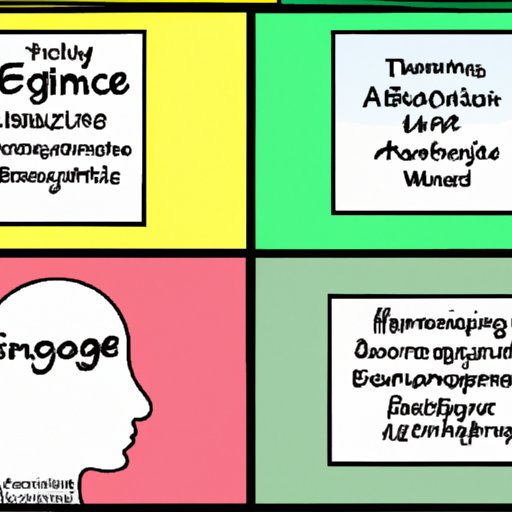Introduction
Being judgemental is defined as “forming an opinion or conclusion about something or someone without having all the facts” (Merriam-Webster). We all make judgements, but it’s important to recognize when we’re being overly critical or making assumptions about another person. When we are too quick to judge, we can miss out on valuable opportunities to learn from and connect with others. That’s why it’s so important to learn how to be less judgemental.
Acknowledge Your Own Biases
The first step towards being less judgemental is to acknowledge our own biases. Everyone has unconscious biases – beliefs or opinions that we don’t even realize we hold – that shape our views of the world. It’s important to recognize these biases and understand where they come from. We need to be aware of our preconceived notions of people and situations before we jump to conclusions.
To start recognizing your own biases, try keeping a journal and writing down your reactions to different events or people. Reflect on why you feel the way you do. Are your reactions based on experience and fact, or are they based on assumptions and stereotypes? Once you become more aware of your biases, you can start to challenge them. Ask yourself if your beliefs are rooted in truth or if they are simply based on prejudices. Develop strategies to help you break out of old patterns of thinking and see things from a new perspective.
Practice Self-Awareness
Another way to be less judgemental is to practice self-awareness. It’s important to recognize how our behavior affects those around us. Being self-aware means taking responsibility for our actions and attitudes. It means acknowledging when we’ve said something hurtful or jumped to conclusions without knowing all the facts. It also means learning to recognize when we’re being judgemental and choosing to take a different approach.
Self-awareness can be difficult to achieve, but it’s an important part of becoming less judgemental. Pay attention to your words and actions, and think about how they might affect those around you. Ask yourself if your behavior is helping or hurting the situation. If it’s the latter, take a step back and consider a different approach.
Put Yourself in Other People’s Shoes
When it comes to being less judgemental, empathy is key. Put yourself in the shoes of the person you’re judging. How would you feel if someone judged you in the same way? Would it be fair? Would it be kind? Thinking about how you would feel in their situation can help you to be more understanding and less critical.
It’s also helpful to try to understand why people act or think differently than you. Everyone has a unique perspective and set of experiences that shape their beliefs and values. Instead of judging them, try to find common ground and appreciate the diversity of opinion. Empathizing with others helps us to be more open-minded and tolerant.
Spend Time with Diverse Groups of People
Another great way to be less judgemental is to spend time with people who are different from you. Meeting people from different backgrounds and cultures can broaden your horizons and help you to see the world from a different perspective. It’s important to remember that everyone has something to offer and that we can learn from one another.
Making an effort to get to know people who are different from you will help you to be less judgemental. Stepping out of your comfort zone and interacting with people who have different beliefs and values can help you to better understand their point of view and be more accepting of their differences.
Reframe Negative Thoughts
Our thoughts play a huge role in how we interact with others. It’s easy to fall into the trap of negative thinking, but it’s important to recognize when this is happening and reframe our thoughts in a more positive light. This can be as simple as replacing a negative thought with a more constructive one. For example, instead of thinking “She’s so annoying,” you could replace it with “I don’t agree with her, but I respect her opinion.”
Try challenging yourself to look at things from a different angle. Ask yourself questions like “What can I learn from this situation?” or “How can I help?” Taking a step back and looking at the big picture can help you to be less judgemental and more understanding.

Focus on What You Can Learn from Others
Finally, focus on what you can learn from others. Appreciate the unique perspectives of others and be open to learning from them. Instead of judging, look for opportunities to grow and gain insight. Everyone has something to teach us, and we can learn a lot by listening and being curious.
By focusing on what we can learn from others, we can become more open-minded and less judgemental. We can recognize that everyone has something to contribute and that we can all benefit from connecting and exchanging ideas.
Conclusion
In conclusion, being less judgemental is an important skill to develop. To do this, we must acknowledge our own biases, practice self-awareness, put ourselves in other people’s shoes, spend time with diverse groups of people, reframe negative thoughts, and focus on what we can learn from others. By doing these things, we can become more open-minded and understanding of others.
(Note: Is this article not meeting your expectations? Do you have knowledge or insights to share? Unlock new opportunities and expand your reach by joining our authors team. Click Registration to join us and share your expertise with our readers.)
